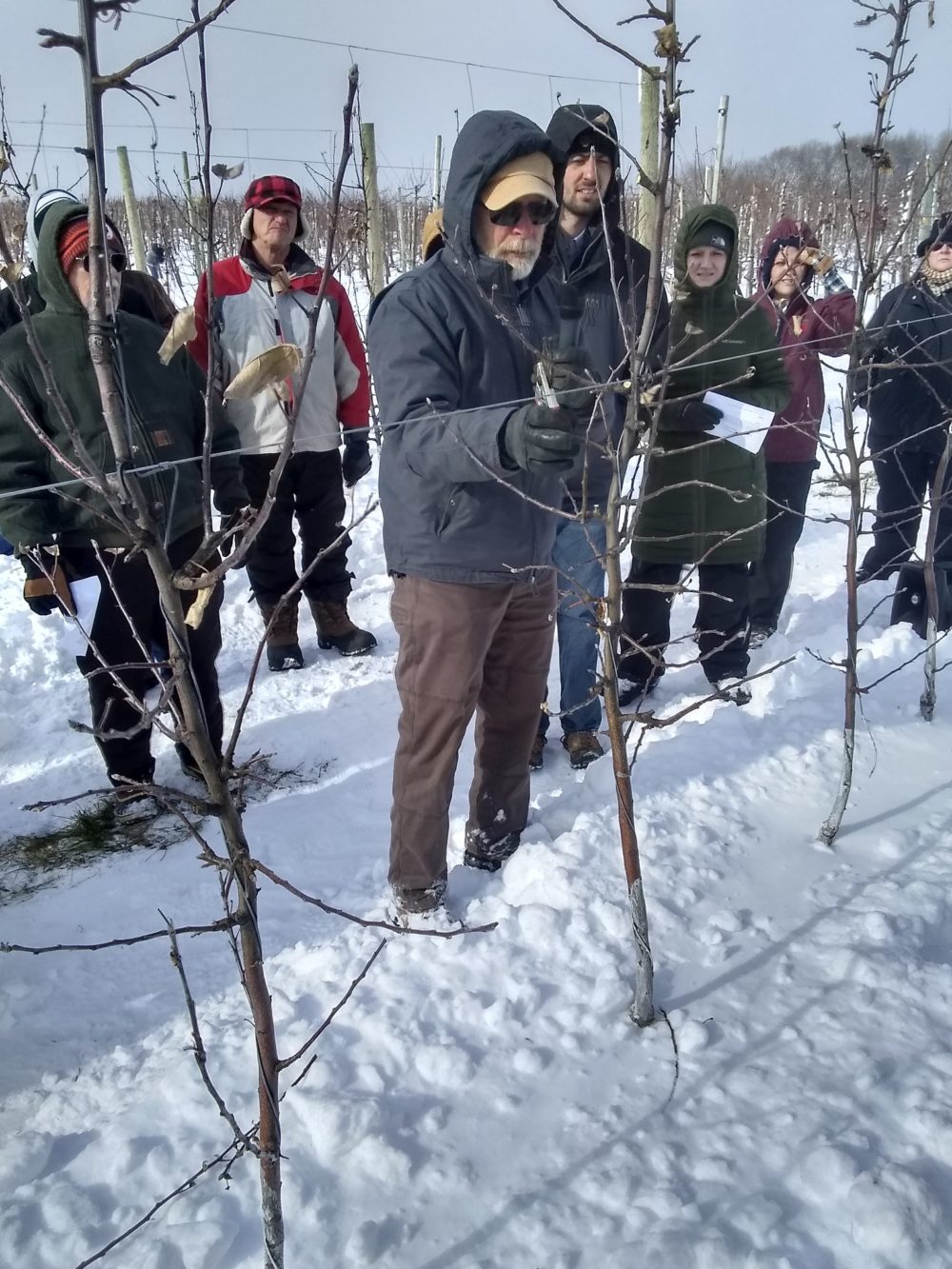The International Fruit Tree Association’s Grand Rapids conference is over, but the post-conference bus tour had just begun Thursday morning.
The first stop was Riveridge Cider’s new facility in Kent City, Michigan, built after the previous facility burned down. Operations Manager Justin Finkler showed tour attendees the new facility’s equipment, including a filler machine that can produce 60 gallons of cider a minute.
Not far away, Finkler showed the visitors a block of Royal Red Honeycrisp on a V trellis system. He also discussed a 20-acre block of sweet cherries on Gisela 5 rootstock, grown in partnership with Greg Lang, a Michigan State University professor who’s helping Riveridge study sweet cherries on V trellis.
The fruit trees were planted on farmland bought by Riveridge in 2011. The apples grown on the old farm were varieties like Ida Red, Rome, and Red Delicious. Riveridge planted 24 acres of Royal Red Honeycrisp on Nic.29 in 2014, and more the following seasons. V trellis isn’t common in the area, so it’s been a learning curve, but Finkler said he wants to compete with the kind of yields orchards get in the Pacific Northwest.
Finkler likes the uniformity of the V system. It makes everything easier: training workers; counting buds, limbs, branches and apples. His production target is 80 apples per tree: four on each side of a leader, 10 on the leader itself. That would add up to about 2,000 bushels per acre.
The second tour stop was Rennhack Orchards in Hart, Michigan, a diverse farming operation that grows nectarines, peaches, table grapes, apples, apricots, tart and sweet cherries, plums and fresh vegetables.
Dave Rennhack showed his IFTA visitors an Evercrisp block planted in 2018 on G.41 and G.11 rootstock. He showed them another block planted in 2015 on G.935 rootstock, both blocks on clay loam soil. Rennhack said Evercrisp is very precocious, and fruit finish gets better after several bearing years. The 2015 block produced 53 bins per acre, two-thirds of which went fresh, the other one-third processing, he said.

The final stop of the day was Peterson Farms, a large fruit processor in West-central Michigan that markets over 150 million pounds of frozen fruits and 7 million gallons of apple juice, cider and concentrate. Peterson Farm Fresh was established in 2004 as a fresh-cut fruit processing company. It’s one of the leading processors of fresh-cut apples in the United States, supplying 85 percent of the sliced apples in k-12 schools across the country, and more than three-quarters of the apple slices in McDonald’s Happy Meals, said Chief Operating Officer Richard Raffaelli.
—by Matt Milkovich
Related:
—IFTA Day 3: Precise crop management
—IFTA Day 2: Innovation in the cold
—IFTA’s first day has precise focus






Leave A Comment